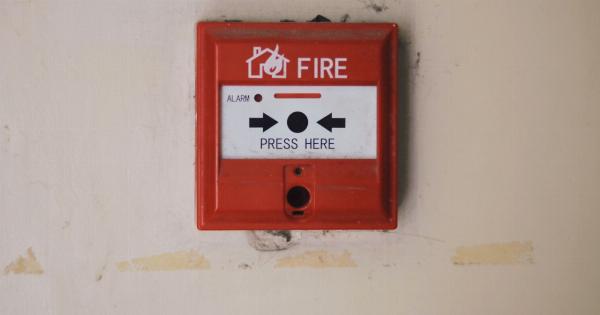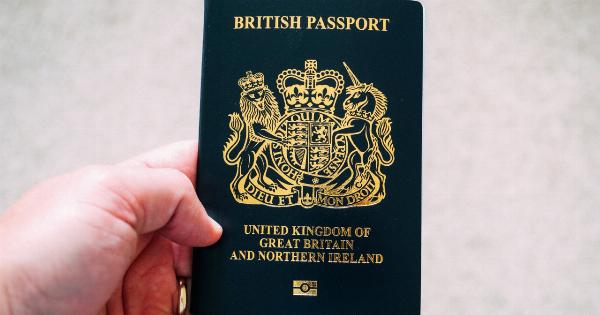The outbreak of the COVID-19 pandemic has significantly impacted the world, causing widespread fear and uncertainty.
At the heart of this global crisis is the role of SARS-CoV-2 executives who play a critical role in tackling the challenges posed by this virus. This article aims to provide an in-depth understanding of the responsibilities and functions of these executives in managing the COVID-19 pandemic.
The Role of SARS-CoV-2 Executives
SARS-CoV-2 executives, also known as top-level management or decision-makers, are individuals or groups entrusted with the authority to make strategic decisions and take necessary actions to combat the virus effectively.
Their role extends beyond political figures and includes top officials in public health agencies, healthcare organizations, and scientific research institutions.
1. Leadership and Decision-Making
The most crucial responsibility of SARS-CoV-2 executives is to provide effective leadership and make informed decisions to protect public health and ensure the safety and well-being of populations.
They need to navigate through uncertainty, incorporate expert advice, and develop strategies to mitigate the spread of the virus.
2. Formulation of Policies and Guidelines
SARS-CoV-2 executives are responsible for formulating policies and guidelines that guide the response to the pandemic. These policies cover areas such as testing protocols, contact tracing, quarantine measures, and social distancing guidelines.
They work closely with health experts, scientists, and other stakeholders to develop evidence-based strategies.
3. Resource Management
Another critical role of SARS-CoV-2 executives is the effective management of resources. They need to allocate funds, medical supplies, and personnel to areas experiencing high transmission rates.
This involves coordinating with various agencies, organizations, and international partners to ensure an equitable distribution of resources.
4. Communication and Public Engagement
SARS-CoV-2 executives have the responsibility to communicate vital information to the public regarding the virus, its transmission, prevention measures, and the progress of containment efforts.
They need to engage with the media, health experts, and community leaders to disseminate accurate and timely information to instill trust and encourage adherence to guidelines.
5. International Collaboration
Given the global nature of the pandemic, SARS-CoV-2 executives play a significant role in fostering international collaboration and cooperation.
They participate in discussions and negotiations with counterparts from other countries to share information, experiences, and best practices. Collaborative efforts extend to research and development of vaccines, treatments, and diagnostic tools.
6. Risk Assessment and Monitoring
SARS-CoV-2 executives must regularly assess the risk posed by the virus to guide decision-making. This involves monitoring infection rates, hospitalization rates, mortality rates, and the effectiveness of containment measures.
They need to adjust strategies as the situation evolves and adopt proactive approaches to minimize the impact of the virus.
7. Advocacy and Policy Implementation
SARS-CoV-2 executives advocate for policies that support public health measures and guide the implementation of these policies at various levels.
They engage with lawmakers, community leaders, and stakeholders to ensure that guidelines are followed and resources are allocated effectively. This involves addressing barriers, promoting collaboration, and adapting policies based on emerging evidence.
8. Evaluation and Continuous Improvement
Continuous evaluation is crucial to improving response efforts. SARS-CoV-2 executives oversee the evaluation of strategies, policies, and interventions to identify areas of improvement and innovation.
They collaborate with researchers and experts to analyze data, assess outcomes, and modify approaches in real-time.
9. Crisis Management
SARS-CoV-2 executives are responsible for crisis management during the pandemic. This includes coordinating emergency response teams, activating contingency plans, and ensuring the swift deployment of resources and personnel.
They need to make rapid decisions and adapt strategies based on emerging situations to effectively contain the virus.
10. Ethical Decision-Making
Finally, SARS-CoV-2 executives must tackle ethical dilemmas that arise during the pandemic.
This includes determining vaccine distribution strategies, balancing public health considerations with economic impacts, and ensuring equity in access to healthcare and resources. They must make decisions that prioritize the greater good and uphold ethical principles.
Conclusion
The role of SARS-CoV-2 executives is multifaceted and critical for managing the COVID-19 pandemic. Their leadership, decision-making, and coordination efforts are essential in ensuring an effective response.
Understanding their responsibilities and functions is crucial to appreciating the complexities involved in combating this global crisis.































